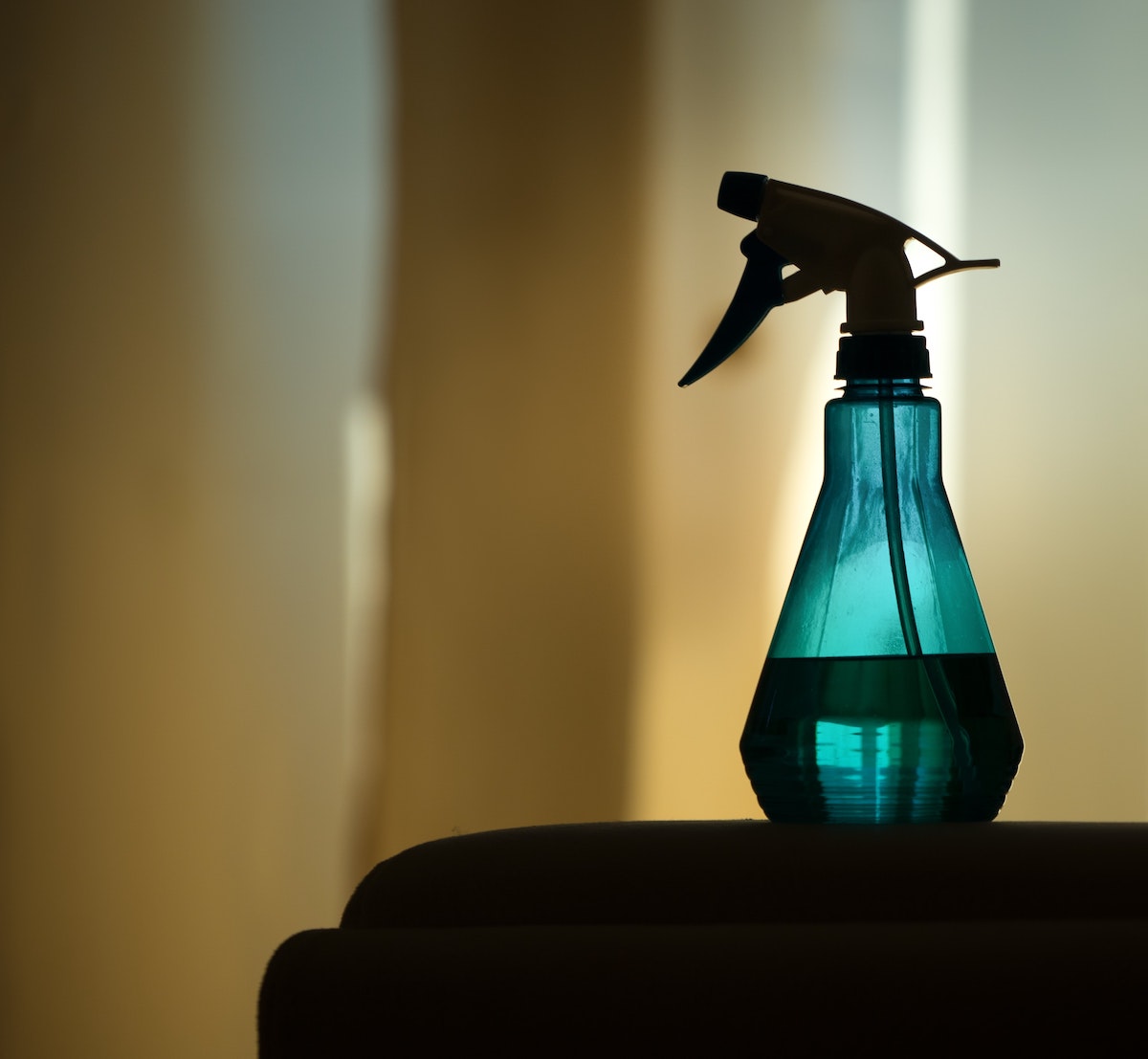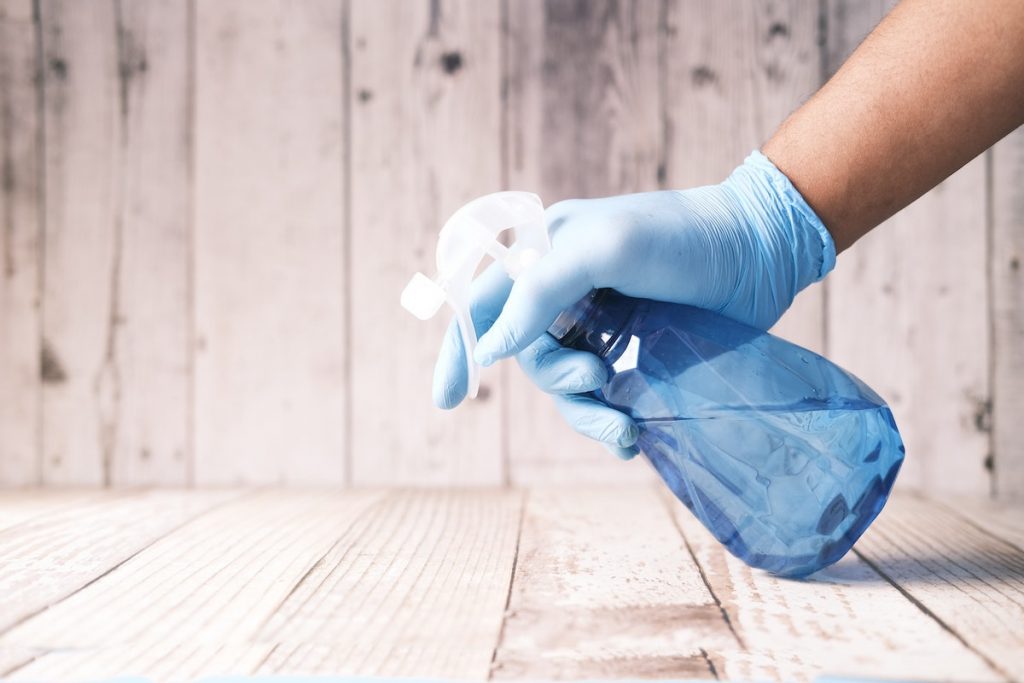“Don’t let the bed bugs bite” is a lighthearted phrase or joke we often hear, especially in conversations concerning bedtime. But for some people, bed bugs are anything but light concerns.
In recent years, we’ve seen a resurgence of these unwelcome guests. In 2022, Chicago even ranked as the top US city for bed bugs (with Philadelphia and New York trailing behind).
Sadly, bed bugs are one of the most difficult pests to deal with. They hide in plain sight while feasting on your blood as you sleep. Their bites manifest as irritating, red bumps on your skin. When the problem gets out of hand, it’s time to address the problem.
The best way to deal with bed bugs is to hire a professional pest control company. However, this home maintenance option can be expensive, so your next best option is a DIY fix, aka bed bug spray. Stores stock good insecticides; you’ll easily find a bed bug spray at Walmart. But not all of these sprays are strong enough or they can also be harmful to you.
To get rid of bed bugs naturally, make your own; use baking soda to kill bed bugs or resort to other natural means.
How to Make Homemade Bed Bug Spray
Why pay for store-bought sprays when you can just make your own?
Like other insects, bed bugs can be killed with natural ingredients — with most of these ingredients easily available in your pantry.
One option is a DIY vinegar bed bug spray. It smells unpleasant, but it can kill and destroy stubborn bed bugs on contact. Vinegar bed bug sprays work best during early infestation; they won’t do much if your infestation levels are too advanced.
To make vinegar bed bug spray, just mix a half cup of vinegar with a half cup of water in a spray bottle. Shake well to combine and directly spray them onto the mattress and other surfaces that they may hide (e.g. bed frame, carpeting, furniture and box springs).
Homeowners with bed bug infestation also often ask “Does bleach kill bed bugs?” It does. Bleach contains strong killing properties that get rid of stubborn pests. Combine it with soap and water and you get a proven DIY bed bug spray that leaves behind an odor that discourages bed bugs from returning to your space. All you have to do is mix one part bleach with four parts of water to prevent skin irritation and staining.
Other homemade bug spray recipes you can try include the following:
- Neem oil and cedar. Cedar has always been an effective natural insect repellant. It has a powerful odor that bugs dislike, which keeps them away. It also has natural properties that kill stubborn pests. On the other hand, neem oil is a popular ingredient for holistic medicine. Since it’s an effective ingredient, it can mix well with cedar. Just mix five to 10 drops of each oil into a spray bottle and mix in a copy of water. Spray the mixture on all surfaces where bed bugs may lurk.
- Tea tree, lemongrass, thyme and lavender oils. Blend five to 10 drops of these essential oils into your spray bottle and add water. Apart from spraying the mixture on all surfaces, you can use this DIY bed bug spray on your body. Just make sure the oils aren’t too concentrated since they can irritate or burn your skin. Dilute the oils in water or carrier oil such as jojoba seed or coconut.
- Alcohol. Alcohol is not an effective bed bug repellent, but it can kill bed bugs on contact. Mix water and 100 percent rubbing alcohol, then spray the mixture all around your area.
When you use homemade bed bug spray:
- Expect it to be just as effective as bed bug sprays that you buy in stores.
- However, homemade bug sprays are not the best options for advanced infestations. These cases will require the services of a professional.
- Not all pantry ingredients can kill bed bugs. For instance, some homeowners use baking soda to kill bed bugs by sprinkling it in infested areas. However, this is a myth.
The Most Effective Way to Use Homemade Bed Bug Sprays

Using a spray bottle is the best way to use your DIY solutions. The particles are evenly distributed in small amounts over a larger area. One spray, however, isn’t enough. You need spray twice or thrice for better coverage.
Another way to utilize your DIY bed bug solution is through an atomizer. The device turns the spray into a fine mist, which blends the particles together. They easily float in the air before settling down. Using an atomizer gives you an overall coverage, more than regular sprays do.
Can I Get Rid of Bed Bugs Myself?
You can. If you can make homemade bed bug spray, you can address this home maintenance problem. A DIY bed bug control plan is an affordable alternative for people who can’t afford professional services. With patience and diligence, plus some hard work, you have a fighting chance against bed bugs.
How to Control Bed Bugs
- Identify the infested rooms. Bed bugs often spend most of their time in the bedrooms; however, any room where you sleep can provide a home for bed bugs. Living rooms with sofa beds and sofas are prone to bed bugs, too. In most cases, an infestation starts in one room before it starts spreading to other places. If you wait too long, you’ll deal with an advanced infestation.
- Don’t throw your bed just yet. Throwing away your bed or bedding is not an option when you have a bed bug problem. Replacing your bed or bedding can be expensive, and chances are that any beds, box springs or mattresses that you bring home will be re-infested.
- Create a safe space to sleep. This is a critical step. Staying in your bed may be uncomfortable, but it reduces the risk of bed bugs spreading throughout your house. If you sleep in another room, the bed bugs may follow you. Make your bed a safe place despite the bed bugs by:
- Vacuuming and stripping the box springs and mattresses. Don’t forget to encase them.
- Isolating your bed from the rest of the house.
- Killing all the bed bugs on your headboard and frame.
- Treat the other areas in your home. If you can catch an infestation earlier, you don’t have to treat anything. Just isolate your bed. But if the infestation spread, follow these steps:
- Prepare the room by separating untreated furniture from the treated ones.
- Treat all of the rooms systematically.
- Repeatedly examine and treat all the furniture.
Bed bugs can be addressed without professional help if the situation isn’t too advanced. However, if you are dealing with an advanced infestation, leave the job to professionals. This way, you’ll lie in bed safe in the knowledge that it’ll be clean and fit for sleeping well.

